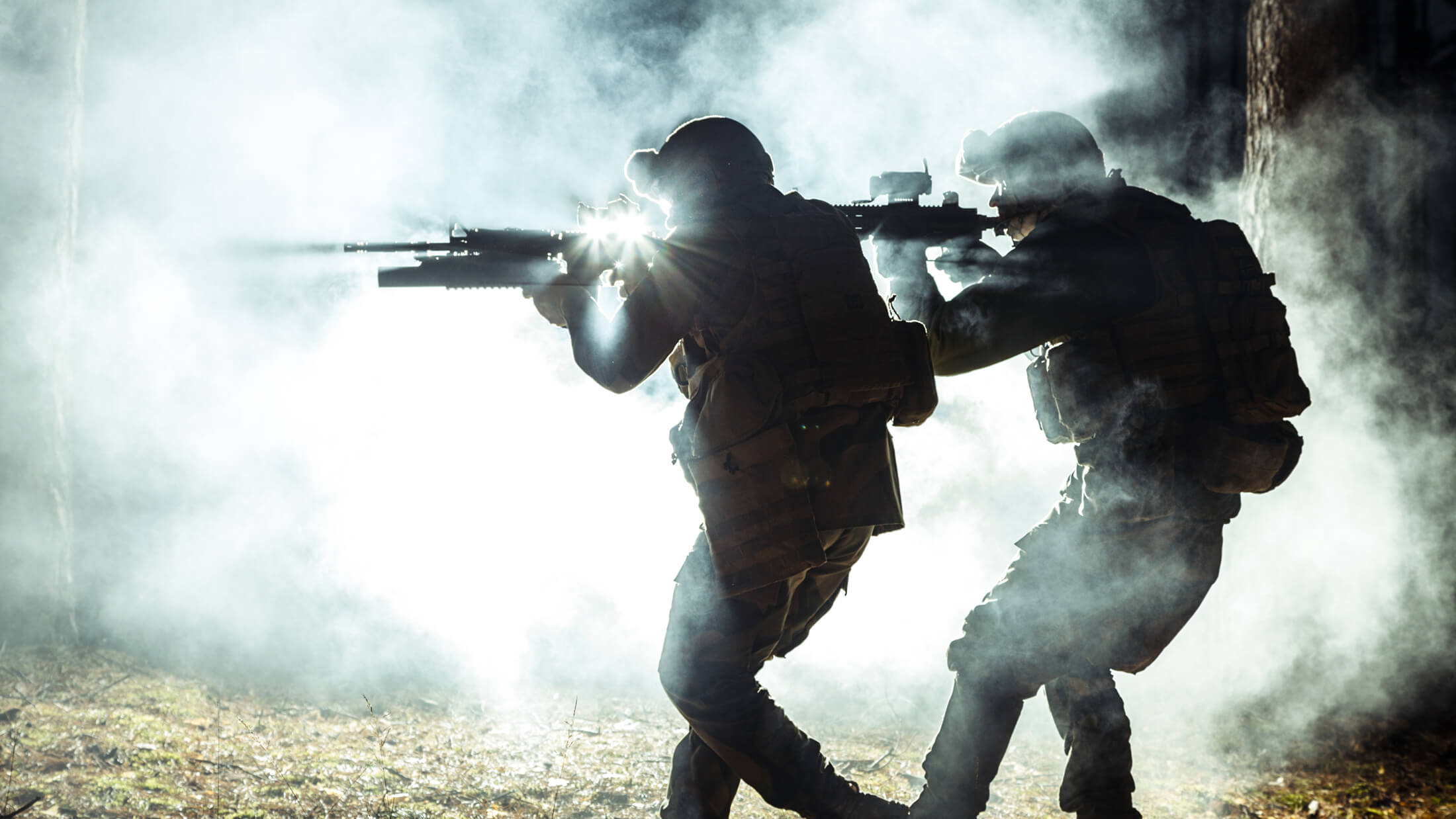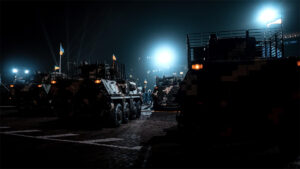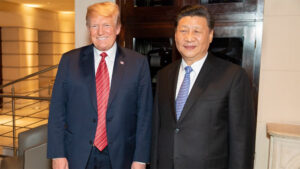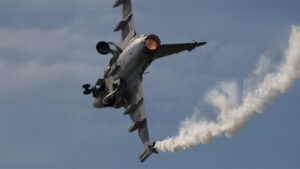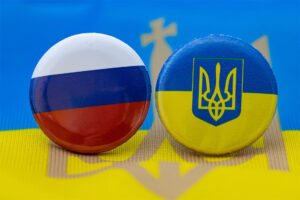WE’RE LESS THAN A WEEK AWAY FROM THE WEBINAR!
Peter Zeihan’s Risk List: What Keeps a Geopolitical Strategist Up at Night
Please join Peter Zeihan for a webinar on June 5th at 12:00 PM EST on a topic that is near and dear to the hearts of the Zeihan on Geopolitics team: geopolitical risk. This webinar will feature Peter’s reasonable-fear list, focused on issues that in his opinion have the most potential to impact market outcomes.
The Western world is beginning to entertain the conversation over the use of Western weapons targeting Russian systems within Russia. There are a handful of countries that have issued their support, but will it be enough?
Countries like Sweden, Poland and France are leading the charge, Germany has recently jumped on the train, and momentum is building. The initial rationale behind preventing Ukraine from using these weapons to strike within Russia was to prevent (or try to avoid) escalation. However, the mounting support in Europe has put the pressure on the Americans to make a decision, and soon.
Given the incompetence that has filtered its way into Putin’s inner circle, this could be a strategic window for the Western world to act – and the Ukrainians are getting a little trigger happy.
Here at Zeihan On Geopolitics we select a single charity to sponsor. We have two criteria:
First, we look across the world and use our skill sets to identify where the needs are most acute. Second, we look for an institution with preexisting networks for both materials gathering and aid distribution. That way we know every cent of our donation is not simply going directly to where help is needed most, but our donations serve as a force multiplier for a system already in existence. Then we give what we can.
Today, our chosen charity is a group called Medshare, which provides emergency medical services to communities in need, with a very heavy emphasis on locations facing acute crises. Medshare operates right in the thick of it. Until future notice, every cent we earn from every book we sell in every format through every retailer is going to Medshare’s Ukraine fund.
And then there’s you.
Our newsletters and videologues are not only free, they will always be free. We also will never share your contact information with anyone. All we ask is that if you find one of our releases in any way useful, that you make a donation to Medshare. Over one third of Ukraine’s pre-war population has either been forced from their homes, kidnapped and shipped to Russia, or is trying to survive in occupied lands. This is our way to help who we can. Please, join us.
Transcript
Hello, everybody. Peter Zeihan here, coming to you in Genoa. Piazza Villa Vittoria. the news today is that the Europeans, and to a lesser extent, the Americans, are debating how involved they want to give in the Ukraine war in terms of weapons and targeting. the idea what the Ukrainians have been asking for for some time and what the Scandinavians and the Central Europeans have picked up on, is as long as Russia is on the attack in places like Kharkiv and Luhansk and the nuts, that they should have the ability to use whatever weapons systems they can get their hands on to target Russian weapons systems and launchers within Russia if they’re part of an active conflict. The idea being that if you see that there is an air base just on the other side of the border where fighter bombers are taking off day in, day out and bombing civilian locations in Ukraine, then it’s silly to not use things like mid-range missiles to go after that air base to this point in order to contain the escalation threat.
the West has pretty much put a blanket ban on that sort of weapon strikes from the Ukrainians, basically saying that if it comes from the United States or Germany or natural in general, then you can’t use it to strike targets within Russia proper that is now weakening. we got three things in play here. First, the countries in question number two, the personalities within Russia, and then three next steps.
So first let’s talk about the countries, Sweden, Poland and the rest of the countries in northeastern and Central Europe have been advocating for this for some time. And so the countries that are most likely to bear some of the blowback being on board, you know, that it’s going to happen sooner or later. The question is how and when.
the in the last couple of weeks, the country that has really stepped in started to argue from the Polish and the Swedish point of view is France. And, Emmanuel Macron, the president of France, is saying that this is obviously a silly restriction and we need to release it. that just left the more conservative members of the coalition who are really, really concerned about what the blowback will be.
But in the last week, all of Schultz, the chancellor of Germany, who has been consistently the most conservative voice in the alliance on pretty much everything regarding this war and said that, yeah, this is something that has to happen and that really puts pressure on the United States to act as well. Right now, the largest country that is saying flat out maybe no, no, but whoa, whoa whoa, let’s let’s think about this slowly.
Is, the government here? Maloney of Italy has basically said it’s kind of funny. She basically called out the French for being French, for having seen some big things but not actually do anything, which is, you know, kind of cute. from my point of view, anyone who it takes the French just like that. But, the point is that this conversation is happening.
It’s already happened at the EU level, and there’s not necessarily been a green light, but the conversation is building steam. And the real question, of course, is the United States is going to go along, since that’s where most weapons come from. But, but, but the fact that the Germans are on board, I mean, it’s probably only a matter of time now how this normally goes down is that one country will say, this weapon system can be used for this purpose, and they will be used and they will test the Russian red line.
And if nothing happens, then everyone piles on. That’s what happened with the same artillery that’s happened with the Storm Sherman missiles. And that’s probably going to now happen for targeting things within Russia proper. That just leaves the personalities. How serious is what’s going on in Russia in terms of the counter threats? Is this a red line that starts a nuclear war?
Well, you look at the people involved. The person who has been making most of the threats is Dmitry Medvedev, who is the former president of the country. Which makes you think that maybe he’s kind of important, but he’s not. He’s incompetent. He’s basically an intern. And Vladimir Putin only keeps him around because he looks Putin’s ass. Just so, and so when you see him making the threat, you know, it’s not all that serious.
It would be serious if it was coming from someone, say, Nikola Patrushev, who is the guy who used to run the entire intelligence system. But in the last month, he’s basically been fired from his position and downgraded. So what Putin has discovered is the people that he has surrounded himself are really good at talking a good game, but not necessarily good at prosecuting a war.
So he sacked his defense minister and brought him into a less dangerous position, put an economist and a bean counter in charge of the Defense Ministry, which in time, if it works, will make for a more competent defense industry, not because people will know how to fight, but because it won’t all be stolen. But then at the National Security Council, he basically just put his crony in there and fired the guy who can actually find Canada on a map.
That’s Patrushev. So we’re in this flux when it comes to Russian foreign policy making, an especially strategic decision making, which I think the Europeans have picked up on and why they’re having this conversation now. Because right now, Putin’s inner circle is anything but competent. At a minimum, it needs more time to find its feet. After this most recent of a shakeup.
And that’s a great time to up the ante in a way that the Russians are going to find very, very, very uncomfortable.

